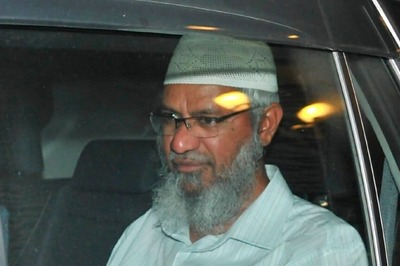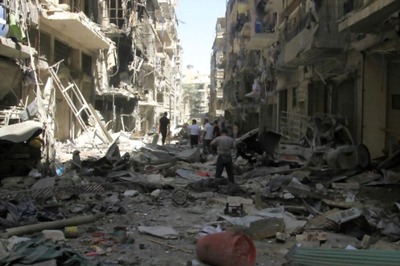
views
The devastating tragedy at the Kollam temple has raised questions about fire safety norms and what kind of compliance actually exists on ground. Do we care enough for public safety to follow basic guidelines? And do people know enough about what to do in case of a fire? Will this fire, that killed 112 people and counting, finally be able to shake up our systems?
There are takeaways for us for the future in every such incident, but not always are lessons learnt it seems, as is evident in Bengaluru. The Karnataka capital saw nine people dying in the Carlton Towers fire six years back, where people were stuck on the sixth and seventh floors of a building as the fire exits were blocked.
A fire safety audit of an estimated 7000 highrises in Bengaluru has shown that rules are quite openly flouted. The audit, taken up a few months back following a High Court directive, has covered inspections of about 820 buildings so far, of which 134 had significant violations, where power disconnection was recommended. And 680 of them had some or the other violation, which meant notices were issued for compliance. The audit revealed that just six buildings that were actually fully compliant.
Uday Vijayan, president of 'Beyond Carlton,' said that there is little care for public safety as a society.
"Somewhere culturally as a nation, we are not tuned to public safety. And fire is one aspect, road accidents are a larger killer. Yet we see people carrying their helmets in their hands and wearing them only when they see a traffic cop. The question I wonder is - who are we kidding? It's your life, you are not doing this for the cop or for his Rs 100," he said.
Vijayan, who lost his 23-year-old investment-banker son Akhil in the Carlton fire, launched Beyond Carlton as the country's first citizen-driven campaign in the country to ensure there are no more Carltons. The journey though has been long and tough. The group has fought and won two battles in the High Court to ensure fire audits every two years in the IT city.
As many as 52 Indians die everyday on an average to fire accidents. And most fires are avoidable, as they are a product of violations or just plain negligence.
"When I heard about the Kollam fire, within me, there was a sense of anger. I can identify with the 100-plus families that are suffering this. Most fire accidents are avoidable, that's the lesson we have learned at 'Beyond Carlton'. Why should this have happened at all? My point is not about crackers being burst, but the way in which they are demonstrated," said Vijayan.
Any large scale firework is never done when there is a large congregation within a certain distance. The Explosives Act and other Acts don't allow this. We have a lot of laws, but implementation is the challenge. Globally, some of the best fireworks whether in Sydney or London, people see that as a spectator," he added.
Clearly we have a long way to go before we match up to the global standards. And 'Beyond Carlton' has started with recognising the problems and trying to tackle them one by one – be it with awareness programmes in schools and corporate houses or dragging government agencies to court over compliance. Resident groups in Mumbai and Delhi have contacted them too, asking them what their learning has been with regard to issues like accessibility for fire engines in crowded areas and availability of fire-fighting equipment in buildings that go up to 30 floors, where people are probably living in bigger disasters in the making.
"We have been working on fire safety for six years. Many a times, people are just riding on a bit of luck. Currently we are working with the fire department on a campaign to check auditoriums. Many times we notice, there are no fire exit signages and exits are blocked. When you walk in a mall, we observe some of the things that hit us. We never realised these until we launched this citizens group. You will probably go as a normal citizen, enjoy your time and walk away that day. Maybe you are lucky, but that one odd day when something goes wrong…" Vijayan rues.
And it's that journey from the smug 'it-won't-happen-to-us' to 'it-could-be-us' one day that they are tackling.


















Comments
0 comment